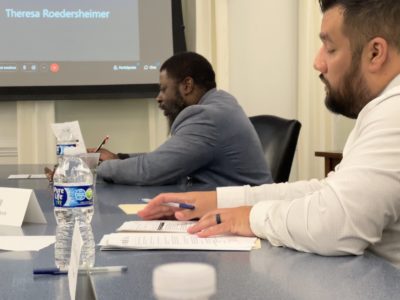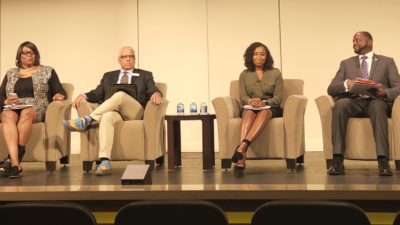
Prior to relocating back to my home state of North Carolina, I would have never considered working in any other professional space but education. I answered the call to teach because I realized the need for us, Black male educators, in the profession.
Black male educators are needed because we impact student achievement and success. We also are equipped to impact students’ trajectories through youth leadership development during after-school and mentoring programs.
We also are needed in social emotional learning (SEL) contexts as counselors, behaviorist therapists, and speech pathologists. We can help the development of our students to be able to identify and make connections through academic, social, and life skills.
For the same reasons that I entered the profession, I am deciding to leave the classroom — in an effort to align myself to be able to plant the seeds of hope and inspirations for future generations to come.
The “invisible tax” on teachers of color, especially men, has become destructive, divisive, and disenfranchising. Schools across the country are failing to support Black male educators in their much-needed capacity. We are needed in various capacities, not working in one capacity and doing several jobs. The added responsibilities of counseling, mentoring, tutoring, being a disciplinarian, serving as a liaison to students of color — all while teaching — became so overwhelming for me. It was the same burnout that many warned me about.
As a Black male educator living and teaching in the South, I certainly understand the socio-emotional challenges that exist within school communities. Students gravitate to teachers whom they can identify with; however, these connections are becoming short-lived due to the lack of recruiting, training, and retaining a diverse workforce of educators committed to supporting the whole student.
The National Center for Education Statistics reported that educators of color represented about 20% of the profession in 2018, and Black men only represented about 2%. Considering that more than half of students attending schools are children of color, the benefits of an ethnically and racially diverse teaching force seem necessary to address the growing disconnections and disparities in education.
School leaders are having a difficult time addressing the challenges impacting educators of color. The better question is whether or not their roles as stakeholders contribute to recruitment and retainment, or if they at times adversely affect those goals. Instead of being revered and respected for their contributions and transcendence in education, Black male educators are often undervalued and feel unsupported in the classroom. This sends a negative message about respect, self-worth, and value within the school and community.
Every student deserves a leader who they can identify with, learn from, and trust during their formative years. Educators deserve to be appreciated, supported, and valued. The dearth of Black male experiences in teaching has become a sad and uncompromising reality. It is disheartening to feel alone growing up with no figures to identify or relate with outside of your home space.
Black male educators and families of color often feel unsupported through systemic biases, funding disparities, and exclusion of the interests and culture of Black and Brown children in public education.
I recommend that school and district leaders remain accountable and continue to plant seeds of support for Black male educators. And in order to retain us in classrooms, schools must be able to bridge cultural gaps and create an open space for dialogue between the school and community members.
Recommended reading



